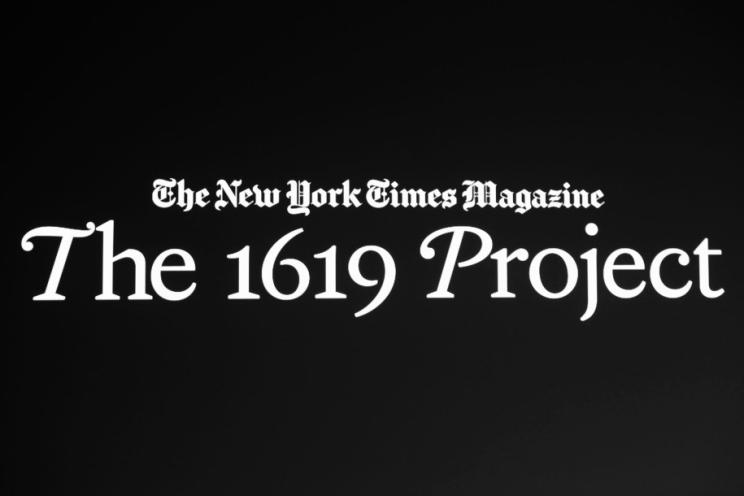In the absence of traditional public examinations this time of year, as a result of you know what, here’s a little history quiz for you. What year marked the creation of the United States?
Most of you will probably answer 1776, the year of the Declaration of Independence. Credit might also be given if you said 1788, the date of the ratification of the Constitution.
You’d all be wrong. The correct date, apparently, is 1619.
This was the year the first slaves arrived in the British colonies of North America, and if the people who control most of the cultural conversation in America these days get their way, we should all see this as the true moment of the founding of the nation. The point, of course, is that it defines America as a nation built not on the lofty ideals of freedom and self-government laid out in the document written by the Founding Fathers, but as one built on the degradation, dehumanization and persecution of black people.
One whose economy owes its rise to global primacy not to entrepreneurial endeavor but to the efficiencies afforded by slavery. One whose whole history must be judged not in the round, with its injustices and failings set alongside its great contributions to human progress, but as a genocidal exercise whose sins must be expiated by today’s heirs.
The self-abasing historical revisionism received a significant cultural endorsement this week when Nikole Hannah-Jones of The New York Times won the Pulitzer Prize for commentary for an essay asserting exactly this argument. The essay formed the introduction to a lengthy work in the newspaper called The 1619 Project, the whole point of which was to reorder our understanding of American history along these most woke lines.
The crux of the argument is that the Revolution of 1776 was less about the colonists unburdening themselves of the imperial yoke and largely about a desire to maintain slavery, which they feared the British were about to abolish.
We know of course that Thomas Jefferson and others owned slaves, but there is no evidence for the claim that the Revolution was about defending the institution.
The thesis was denounced by many of the most eminent scholars of US history — from the left (where most of them reside) as well as from the right. One African-American scholar of the period, Leslie Harris, wrote in Politico: “Far from being fought to preserve slavery, the Revolutionary War became a primary disrupter of slavery in the North American colonies.”
The essay was replete with historical errors (Hannah-Jones also had a go at Abraham Lincoln, repeating the old claim that the 16th president had no real interest in equality) and highly tendentious. But no matter. The Pulitzers, like the Oscars, Tonys and others, are less about rewarding quality journalism and more about affirmation of the prevailing ideologies of the principal intendants of America’s cultural story.
A number of universities have already said they will make the 1619 Project a tool for teaching US history. Given what we know about freedom of intellectual thought on campuses on the issues of race, gender and sexuality, chances are that this view will become the unchallengeable official version of events quite soon.
No one challenges the proposition that US history is bound up in a history of repression and exploitation of minorities, from the slaughter and dispossession of Native Americans to slavery and Jim Crow laws. But to assert, on the basis of zero historical evidence, that its very foundational motivation was the persecution of those minorities is a conscious effort not to provoke academic debate but to inculcate the entire country, its people and its institutions in a continuing crime against humanity.
This kind of thinking represents so much of the West’s self-image these days. The reorienting of our national stories to emphasize every evil and depreciate every good — in education, the media and entertainment industries, as well as, through creeping cultural metastasis, in much of the business world — has advanced so far that we almost don’t notice any more.
It’s no wonder that this dominant narrative has helped create the political turbulence we’ve seen in the past few years. Part of the populist message is that you don’t have to be ashamed of who you are.
Unless we begin to reverse this cultural self-loathing, voters will feel inclined to turn to those who defend all of their heritage — including its darkest parts — and in much more baleful ways.
